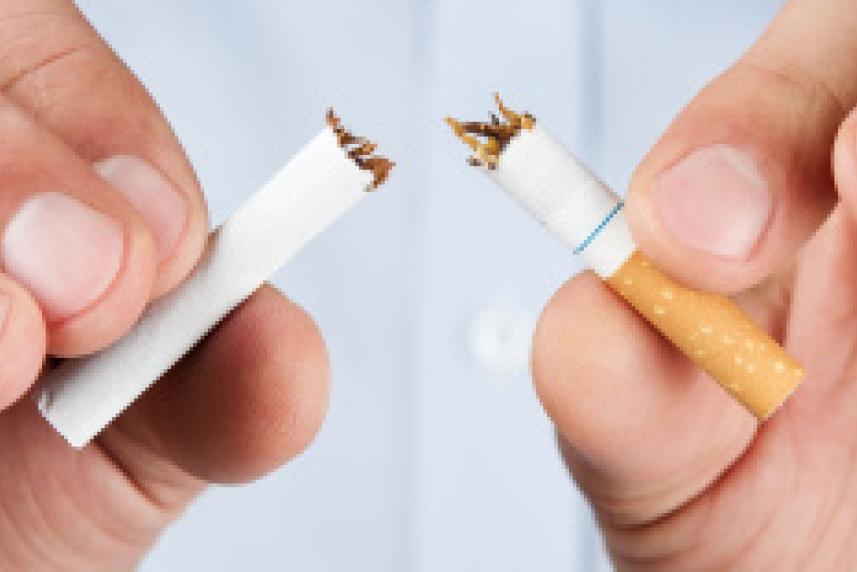Your life on cigarettes
It’s not just about your lungs.

Even back in the Mad Men era (when smoking was glamorous), it was a known fact that cigarettes and secondhand smoke were harmful to one's health. And yet, approximately 40 million people in the U.S. still smoke cigarettes, according to the Centers for Disease Control and Prevention (CDC). That's almost 20% of the adult population. Only sneak in one or two cigarettes a day? That's still damaging your body. "A common misperception is that casual [and] light smoking isn't that bad," says Brittany Raines, a representative for the CDC. Although health risks increase with the amount of cigarettes smoked, there is no safe amount. Skipping cigarettes is, and will always be, better than smoking even one cigarette.
Here's how this hard-to-quit habit can negatively affect all aspects of life, including sleep to appearance to longevity.
Sleep
Having trouble sleeping? Cigarettes may be part of the problem, and the research isn't anything new. Back in 1995, researchers from the University of Kentucky reported that cigarette smokers were more likely to report problems going to sleep, staying asleep, and experiencing more frequent daytime drowsiness when compared to non-smokers. And the habits may be cyclical. Sleep deprivation actually increases cigarette smoking, reported researchers in 2009 from the University of Chicago.
Appearance
If you're looking for the fountain of youth, cigarettes are not it. Cigarette smoke causes skin cells to oxidize and therefore lose elasticity, potentially leading to skin disorders and premature aging, reported researchers from Japan. For a tough-love look at the effects of cigarettes on aging, Polish researchers reported, "the skin of smoking addicts at the age of 40 years resembles skin of non-smoking 70-year-old adults." Furthermore, the study also notes that damage due to tobacco smoke is permanent.
Health
The health effects of cigarettes have been thoroughly documented since the 1960s. It's not an exaggeration to say that cigarette smoking increases your risk of health problems. Here are just a few hazards:
- Risk of dying from chronic obstructive lung disease increases tenfold. Of all deaths from chronic obstructive lung diseases, 90% can be attributed to cigarette smoking.
- Risk of heart attack increases. If you smoke a pack a day, your risk is doubled. Think about it this way: your heart attack risk can drop even just two weeks after you quit, although amount will vary from person to person depending on other health and lifestyle factors.
- Risk of stroke increases 5-15 years after you quit, your stroke risk goes down to that of a nonsmoker.
- Risk of cancer increases, whether it's lung, bladder, cervical, larynx, mouth, throat, esophagus…About 70 of the chemicals in tobacco smoke are known to cause cancer.
Longevity
Quitting smoking is always a good idea, but when you quit can help determine longevity, finds a recent study published in the New England Journal of Medicine. Researchers took a comprehensive look at fifty years of smoking and smoking cessation and found that quitting by 40 is ideal, but even those who quit before 60 have lower risk of a smoking-related death. The two main mortality risks, lung cancer and chronic obstructive pulmonary disease, are largely avoided if you quit at a younger age.
Quit Tips
If you're a smoker who wants to quit, you're in good company. More than 70% of smokers want to quit, reports the CDC. The CDC and BeTobaccoFree.gov offer resources for smoking cessation. A few tips:
- Start by talking to your doctor. He/She should be able to answer your questions and give you advice.
- If quitting cold-turkey isn't for you, SmokeFree.gov offers a prep guide so you have the tools you need to take the right steps.
- Use a support program (1-800-QUIT-NOW is a national telephone resource). Ask your friends, coworkers, and family to support you.
- Keep busy. Try these tips from SmokeFree.gov that will help you avoid triggers.


